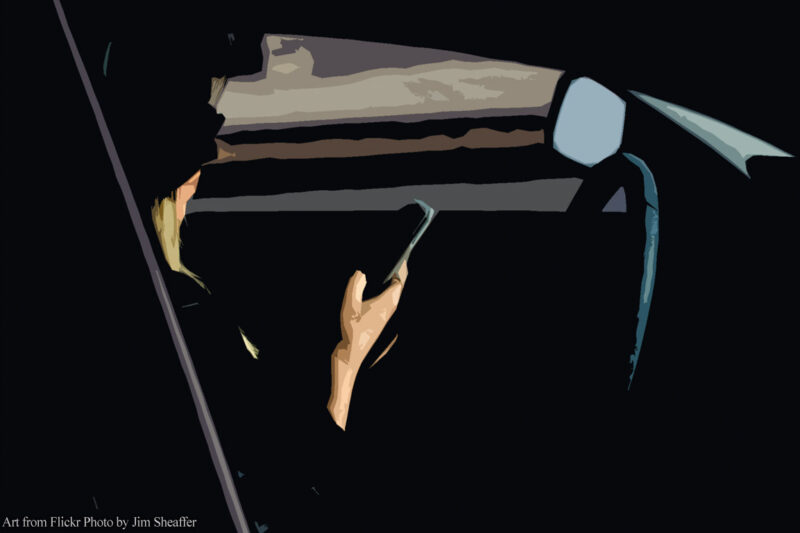A New Implication of Cellphone Video: Citizens Taping Each Other For Police


The Web site Circa on a new that encourages members of the public to videotape other members of the public who are texting while driving, and to submit those videotapes to the authorities so that the texting drivers can be ticketed. The app pays a $5 bounty to those who submit approved videos and is currently in use in some areas in California.
What are we to think of this?
To start with, letโs be clear: people have a First Amendment right to take video in public. That factโcombined with the relatively new reality of a video camera in everyoneโs pocketโdoes raise some privacy threats, but (as I have discussed) they are inescapable. One such threat, for example, might involve a closeted teen driving to a gay rights meeting, or a battered spouse traveling to make secret arrangements to escape, who could face serious consequences for having their whereabouts revealed through one of these videos. Of course, that same thing could happen should they get an old-fashioned ticket for speedingโor for texting. But, the video could also reveal who else is in the car with them.
More broadly, this system evokes uncomfortable comparisons with totalitarian societies where individuals are encouraged to constantly inform on one another. I certainly do not want to undercut the seriousness of distracted driving, which is a genuine problem in the smartphone era that has created much tragedy. As a cyclist I see this every day out on the roads where texting drivers represent a mortal threat to me.
But most people probably wouldn't want to live in a world full of vigilant, cellphone-toting busybodies enforcing every rule and regulation at every moment. Indeed, privacy thinkers have long observed that such โLittle Brotherโ surveillance could become oppressive in the same way that Big Brother surveillance has long been feared to be. Itโs not hard to imagine this system, if successful, being expanded. The appโs makers themselves โspeeding violations are not currently supportedโ (emphasis added), but given the profit motives at work hereโboth by the app makers and by the army of phone-toting vigilantes that they seek to createโit could easily grow to cover not only speeding and parking violations, but also any other conceivable regulation, from driving with a broken tail light to jaywalking.
In fact, should such a Little Brother ecosystem emerge, the next step would probably be bounty-chasing citizens using their carsโ built-in cameras combined with additional apps to identify violations such as broken tail lights or changing lanes without signaling and transmitting the video to the authorities, all automatically without any human intervention. And presto, weโre in the realm of AI law enforcement, with all the problems and conundrums that such enforcement raises.
Of course, people already do inform on their fellow citizens. But such reports are typically limited to the most serious crimes, or those that directly harm an aggrieved party. What is new about this model is that it provides a means for people to engage in such reporting in areas where they previously could not do so, and allows citizens to provide actual evidence of infraction besides their testimony. Of course when citizens are submitting evidence to the authorities to be used against other citizens in legal proceedings, one issue that always looms is the possibility of falsification of evidence by grudge-holders or others trying to frame their enemies. It sounds like this outfit has at least thought about chain-of-custody and authenticity issues (submitted video is encrypted and digitally signed, for example). Whether such measures are adequate will need to be hashed out in court.
Racial bias
One of the biggest problems with this model of law enforcement is the likelihood that its use will reflect racism and other societal biases, causing some groups to become subject to more stringent enforcement than others, potentially even more than we have seen in many areas with enforcement by actual police officers, or in a less measurable and/or controllable manner. The makers of this app should take steps to at least measure whether it is resulting in racial or other biases.
Finally, let me note one potential element of hypocrisy with regard to this app. In their the makers address the question of whether citizens can submit reports of police officers who are texting while driving. The answer: no. โPolice officers are trained on duty to be able to use a mobile device or computer while on patrol,โ they explain. This sounds dubious to me. Is there really a portion of every police academy curriculum dedicated to such training? And can such training even really be effective? The cognitive challenge of trying to pay attention to a digital device while operating a two-ton vehicle traveling at 55 MPH (which means a driver will cover the length of a football field in just 5 seconds, as the app makers point out) seems to me like something that emerges from the deep structure of the human brain, not fixable with any amount of training, let alone whatever course in driving-and-typing that todayโs officers allegedly undergo. The whole thing smacks of yet another police privilege. When Iโm biking Iโll be just as dead if itโs a police officer who runs me down.
Itโs only relatively recently that weโve entered the stage in human society where nearly every person carries a video camera with them at all times, and the social implications of this shift are still emerging. Historians will argue about the origins of the Black Lives Matter movement and the new attention to police violence, for example, but thereโs a good argument that they stem from a video revolution in policing. Now this app is raising another possible implication of video revolutionโpervasive videotaped citizen enforcementโthat we as a society have not yet confronted.


